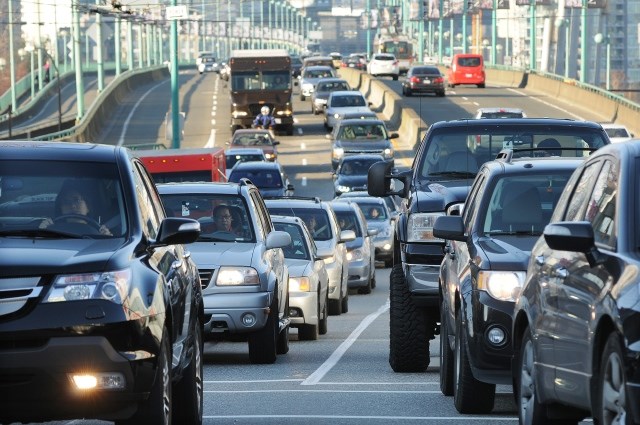Could this happen in Vancouver?
This is the question that went through my mind last Thursday night while stopping off in London on a flight from Moscow.
Since I was too late to see a play, I decided to take a nighttime bus tour of the city, something I highly recommend. While waiting for the tour to start, I popped into a nearby pub crammed with noisy 30-somethings enjoying what for me were very expensive drinks.
I stepped outside with my pint of beer, because you can in London, and a young lady started to chat.
“Where are you from,” she asked. I said I had just flown in from Moscow and was on my way home to Vancouver.
“Where are you from,” I asked. Poland, she said, but she lived in London.
She went on to say she had just spent three years living in Toronto.
“So how does living in Toronto compare with London,” I asked.
She said she enjoyed a much higher standard of living there — she earned more, the housing was a lot less expensive and she got much more holiday time. But she decided to return to London to be with friends and enjoy better work opportunities.
I asked whether this pub was always so busy. “Generally yes,” she said. “But especially on Thursdays.”
I was curious why Thursdays were busier than Fridays.
“That’s because many people go home on Fridays,” she said.
The woman then went on to explain that quite a few of her colleagues cannot afford to live in London so they have bought homes in less-expensive communities further away.
Rather than commute daily, they commute weekly.
Their spouses and children live in a house away from London while they share a bedsitter or small flat during the week with co-workers or others who find themselves in a similar situation.
I found this quite astounding and was curious to know how common a practice it was. Before boarding my Vancouver flight, I asked others who confirmed they too had friends and colleagues commuting weekly.
While it will be little comfort to those in Vancouver struggling to rent or buy a home, relatively speaking, London’s housing is even more expensive than Vancouver’s.
The primary reason, as in Vancouver, is an imbalance between supply and demand.
In 2015, London’s population exceeded 8.6 million.
The city is adding nearly 70,000 people and 34,000 jobs every year. However, the current supply of new homes is about 20,000 to 25,000 starts per year, a number that has not changed significantly over the last 15 years.
By comparison, Metro Vancouver’s population is expected to increase by around 30,000 per year, and some years, Metro Vancouver builds more housing units than London.
The reasons why London produces so relatively few homes sound familiar. There is a shortage of skilled labour and a shortage of some materials. Moreover, in the U.K., it is not to the housebuilders benefit to radically shift the imbalance between supply and demand.
Furthermore, builders are often required to build affordable housing units within their projects, “subsidized” by the market units. This increases the cost of the market housing. Sound familiar?
In an effort to come up with alternative affordable housing ideas, the New London Architecture Centre invited architects, builders, economists and housebuilders to suggest different ways to address the current imbalance between supply and demand.
Many interesting ideas came forward, from infilling relocatable modular housing — an idea I have been proposing for years, to “blind tenure” developments that mix market and non-market housing in different ways.
Over the coming months, I will share some of the ideas that could have direct application to Vancouver, with Vancouver Courier readers
In the meantime, let’s hope we can come up with new solutions so that we don’t have pubs filled with 30-somethings on Thursday nights, because they too must commute back home on Fridays, only to return to Vancouver Monday morning.
(If you want to know what I was doing in Russia, I’m giving a lecture at SFU Harbour Centre this Thursday Feb. 18. To register, click here.)
@michaelgeller



